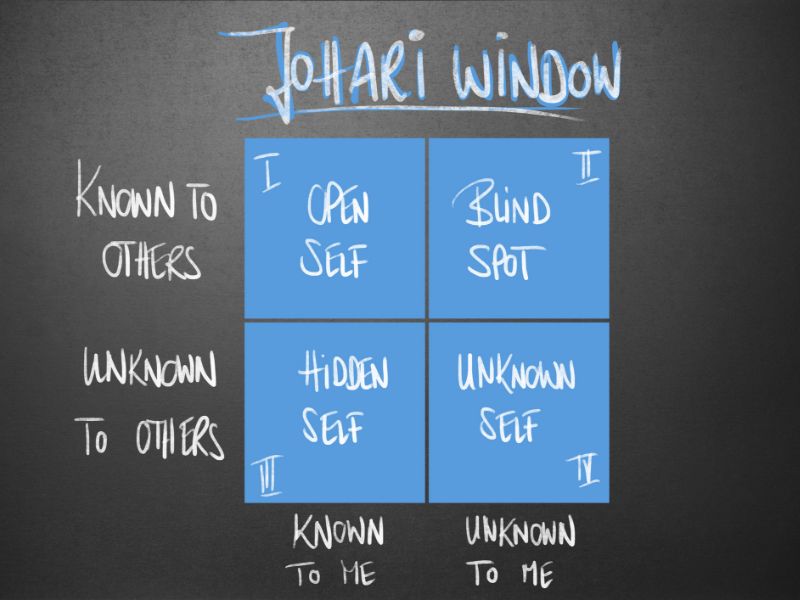Ways to Apply the Johari Window in Job Searching

In every job searching process, understanding how others see you is important. The Johari Window is a tool to help you improve your self-awareness. It's a framework that analyzes people's conscious and unconscious biases to refine their understanding of the self and others. Read more to learn what a Johari Window is and how to apply this tool in your job search.
The Basics of Johari Window
Region 1: Open Area
This area is also called the "known to self and known to others" area. As the name suggests, it includes things you know about yourself and what others know about you. The details you often see here are your name, address, and other personal data. This region may even include some of your characteristics that everybody may agree on.
Region 2: Blind Area
Another part you need to remember in understanding the Johari window is the "known to others but not known to self" region. This blindspot area contains things that other people know about you but is unknown to you.
For example, others may see you as kind because of your actions. You may not think the same as those actions are something you normally do.
This region is often the most helpful. Talking to others and getting feedback will help you recognize your strengths and weaknesses. You'll have a starting point on where to improve or areas you need to uplift.
Region 3: Hidden Area
The hidden area, or the "not known to others, but known to self" region, is another part that makes up what the Johari window is. This area can also include the values or principles you live by and the things you don't share in some settings. It's your private life that only you, and maybe a select few, know about.
Region 4: Unknown Area
Not all details are known to you or your peers. Everyone has unknowns, which is a part of what makes you human. That area in the Johari Window is the "not known to others and self." It sets the limit of self-appraisal. This area may include events that lead to where or who you are in the present.
What's the Point of the Johari Window in Job Searching?
Now that you know what the Johari Window is, it's time to see how you can use it. Here's how this framework can help in your job hunt.
-
Lets you understand who you are
Understanding yourself is important. You can't improve yourself or showcase your talents if you don't know them. This framework allows you to reflect on who you are, helping you reach a breakthrough. It may even give you an idea of what job suits you or the position you like.
-
Allows you to explain yourself better
Looking for a job doesn't stop with sending your resume, portfolios, or CVs; you'll be tested repeatedly. You may also have to answer questionnaires that help employers understand who you are. The Johari Window allows you to look back into your history that shaped who you are as a person and everything about you.
-
Provides a way to see your strengths
Your strengths and abilities are important aspects employers look for. These traits help them understand if you're fit for the role. The Johari Window's blindspot area may help you see these characteristics.
-
Gives you a glimpse of your weaknesses
Part of what the Johari Window entails is the process of knowing your weaknesses. Everyone has something they're good at, but this doesn't mean they don't have flaws. The Johari Window lays out everything about you, both strengths and weaknesses. You discover areas you need to work on as you talk to others.
-
Prepares you for job interview questions
By knowing who you are—strengths, weaknesses, likes, and dislikes—you can easily navigate your interviews.
Improving Self-Awareness
Using the Johari Window can help you better understand yourself. Deepening your self-awareness is important since it allows you to improve in certain areas of your life. More than that, the Johari Window can help you in the job searching process. Whether preparing for an interview or looking for your dream job, this tool allows you to lessen the job hunting stress.
Check out our website today and land the job of your dreams.



